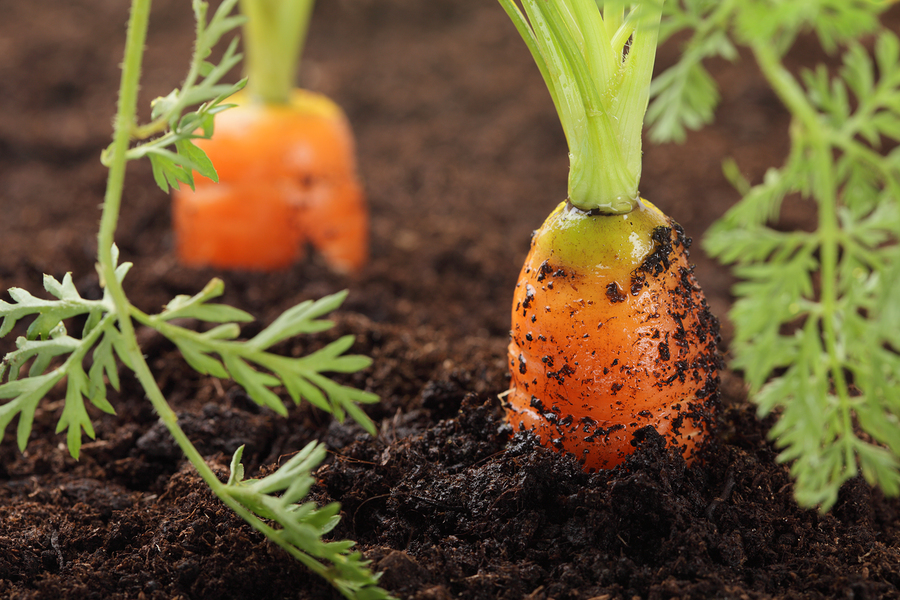Top 5 money saving garden hacks to try this spring
We know money doesn’t grow on trees, which is why we’re always on the lookout for smart ways to save you some cash.
With the clocks pushed back, warmer weather on the horizon and the start of a new financial year in tow, now’s the perfect time to get outside and do some digging so you don’t have to dig too deep into your pocket. We’ve cultivated some top tips to saving money in the garden this spring to get you started.
-
Grow your own vegetables
According to This is Money, you could knock more than £1000 off your yearly food bill by cultivating a plot of land. Potatoes, runner beans, spring onions and salad leaves are ideal vegetables to start the growing habit as they require little attention once planted.
You can get a large bag of around 20 specially grown seed potatoes for under £4, with each potato capable of growing 3kg worth of additional potatoes. Just remember to stagger the planting of your vegetables so that they’re ready to pick of dig up throughout the year.
-
Sow seeds instead of buying plants
Now is the best time to start sowing seeds. As you enter your local garden centre, look away from those tempting pre-grown annuals and head straight for the seed racks. A single pack of seeds costs a couple of bob and can yield 40-50 plants, whereas a nursery cell pack containing as few as six plants can cost more than £5 alone.
“Direct sow” varieties can be sown directly into your garden’s soil and don’t have to be pre-planted indoors, so are great for beginners. If you want even more bang for your buck, choose reseeding annuals (like poppies) that bloom year after year from the original seeds.
-
Don’t fork out for fertiliser
Your veg plots and seedlings need good quality soil to grow but that doesn’t mean you need to spend £20 on a large bag of fertiliser. If you have access to a pond, the algae growing on top can be used as a rich alternative to the fertiliser you get in the shops.
Spring is also the best time to get started on making compost. Composting turns waste into valuable food for your garden and most garden waste and uncooked vegetable waste, tea bags and egg shells from your kitchen can be composted. Follow Get Composting’s easy guide to begin.
-
Be smart with slugs
You don’t need special slug killer to stop them getting at your plants – there are plenty of ways to ward off your slimy fiends. We love these top tips:
- Beer! Place a saucer of beer on your plot to keep the slugs at bay
- Spread petroleum jelly around the base and top of plant pots to help slugs slide away
- Place traps, such as scooped out half orange, grapefruit or melon skins, laid cut side down near vulnerable plants. Check and empty these regularly, preferably every morning
-
Be water wise
Around a third of UK homes are on a water meter and we should all do our bit to reduce water usage, regardless of the cost. Winter rain is stored in the soil throughout spring, so trees shrubs and climbers with large roots will have plenty of water to keep them going.
Guy Barter, from the Royal Horticultural Society, gives us his water-saving advice: ‘Waste water from the kitchen is highly suitable for watering gardens, grey water from the bathroom is usually satisfactory, but perhaps best not used on edible crops.’
At First Utility we put our energy into saving you money, with customers that switch to us saving over £200 a year on their energy bills*. Take a look at our money saving tips for more inventive ways to look after the pounds.
About First Utility
This guide was supplier by First Utility, the UK’s fastest growing and largest independent energy supplier. Offering an alternative to the ‘Big Six’ providers it is committed to helping the UK reduce its energy bills by offering some of the cheapest gas and electricity tariffs, helping customers use less energy through the use of innovative technology and campaigning for industry change.
Disclaimer
The contents of this article are for reference purposes only and do not constitute financial or legal advice. Independent financial or legal advice should be sought in relation to any specific matter. Articles are published by us without any knowledge or notice of the circumstances in which you or anyone else may use or rely on articles or any copy of the information, guidance or documents obtained from articles. We operate and publish articles without undertaking or accepting any duty of care or responsibility for articles or their contents, services or facilities. You undertake to rely on them entirely at your own risk, and without recourse to us. No assurance of the quality of articles is given or undertaken (whether as to accuracy, completeness, fitness for any purpose, conformance to any description or sample, or otherwise), or as to the timeliness of the publication.
ADVERTORIAL
Latest posts by Sally - Silversurfer's Editor (see all)
- Top tips for preventing peanut butter from solidifying at the bottom of the jar - November 25, 2024
- Will you be sending Christmas cards this year? - November 23, 2024
- Do you like the new Jaguar rebrand? - November 21, 2024
- Christmas Decorations Masterclass: Make your own Festive Wreath, Garland and Flower Centrepieces - November 21, 2024
- Finding warmth in cold days - November 21, 2024





















